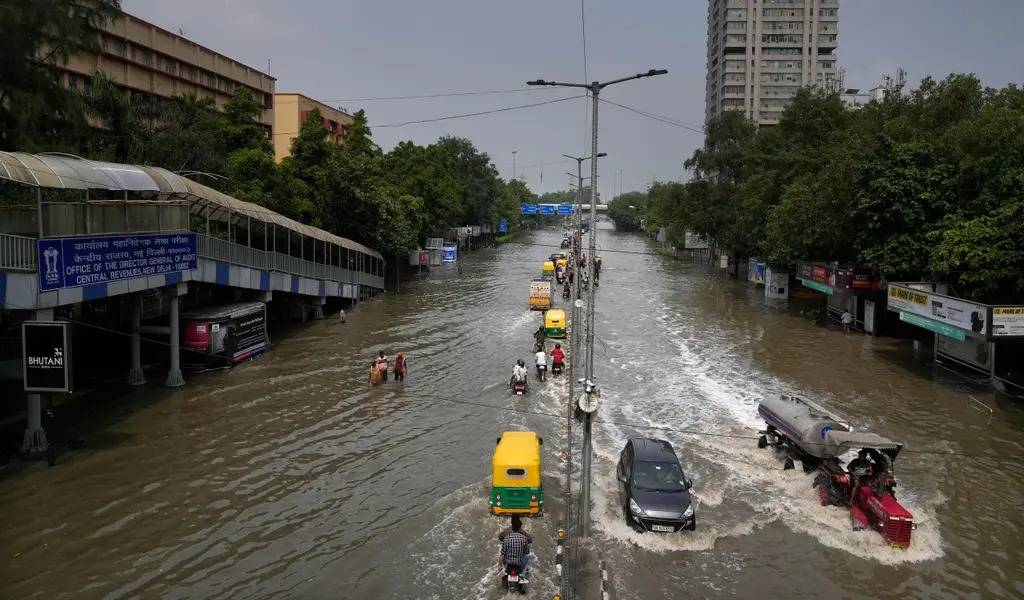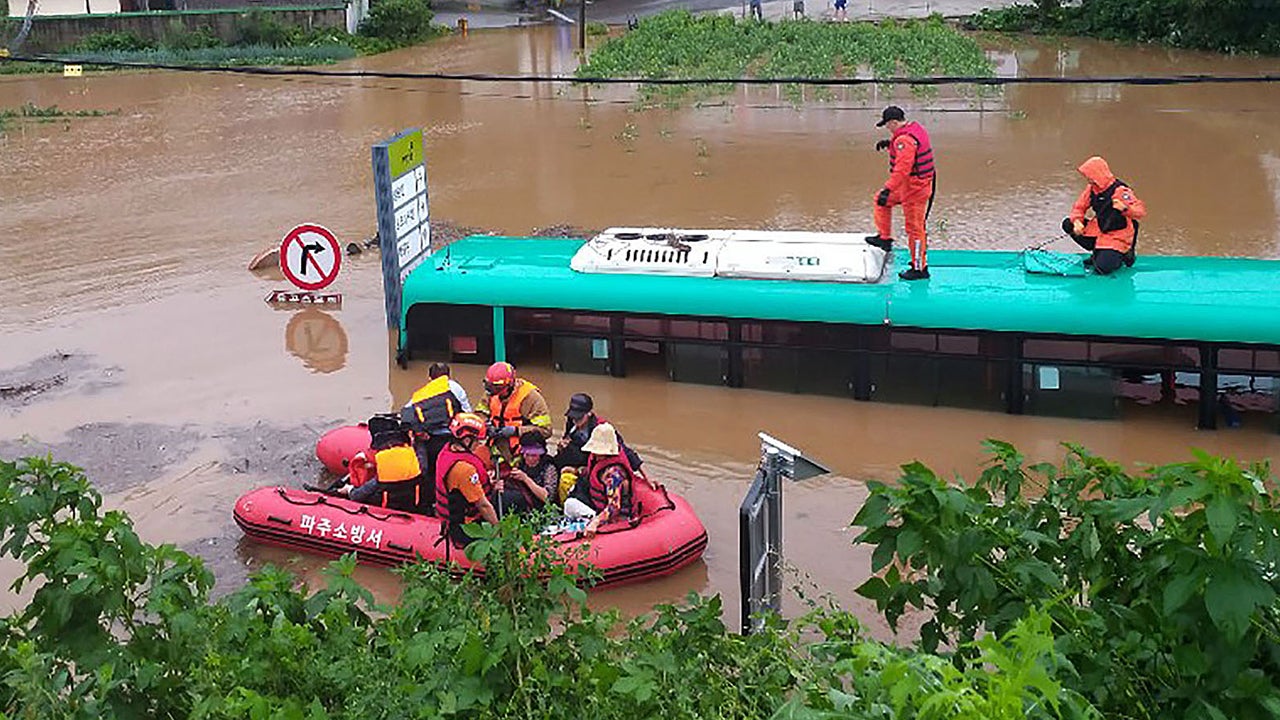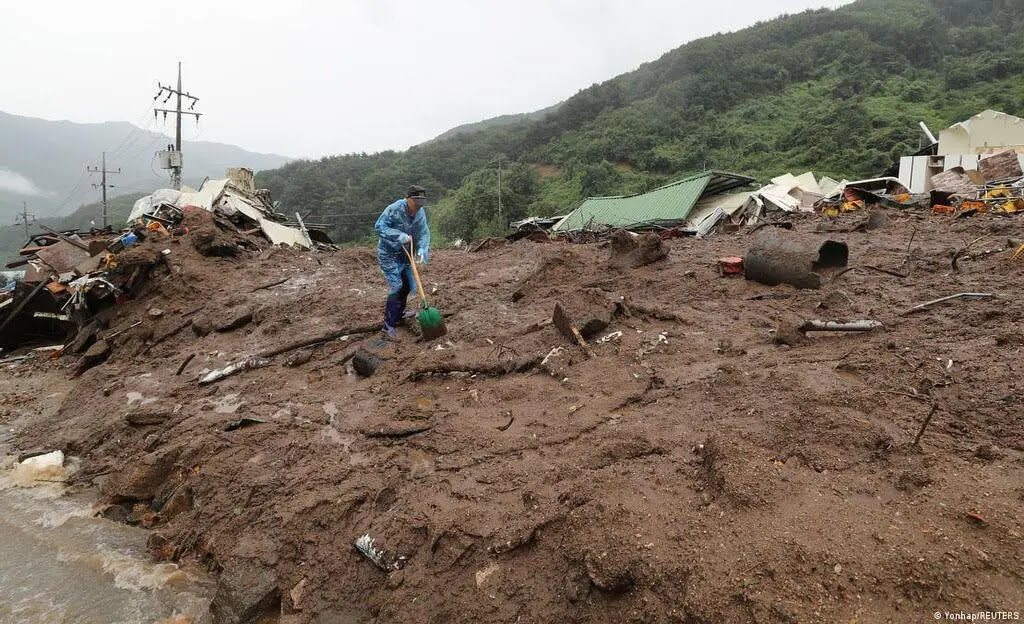(CTN NEWS) – Extreme weather events and flooding have become increasingly common in various parts of the world, causing widespread devastation and posing significant challenges for affected regions.
In recent news, a series of floods have been reported in Korea, Japan, China, and India, highlighting the urgent need to address the impact of climate change on these countries.
This article delves into the causes and consequences of extreme weather and flooding in these regions, while also exploring potential solutions and mitigation strategies.
Extreme Weather and Flooding: The Devastating Consequences
Flooding and extreme weather events have severe consequences for the affected regions. The destruction caused by these events impacts infrastructure, agriculture, and human lives.
It is essential to understand the underlying causes to develop effective strategies for prevention and mitigation.
The Link between Climate Change and Extreme Weather
Global climate change plays a significant role in the occurrence and intensity of extreme weather events.
Rising global temperatures lead to changes in weather patterns, resulting in increased frequency and severity of storms, hurricanes, and heavy rainfall.
Impact on Infrastructure and Economy
Extreme weather events, including flooding, wreak havoc on infrastructure, leading to disruptions in transportation, communication, and power supply.
Roads and bridges get damaged, buildings collapse, and critical utilities are compromised.
These events also have a significant economic impact, causing substantial losses in terms of property damage, business interruptions, and increased recovery costs.
Agricultural Challenges and Food Security
Floods can decimate agricultural lands, destroying crops and livestock. This not only affects the livelihoods of farmers but also poses a threat to food security in the affected regions.
Loss of arable land, contamination of water sources, and disruption of supply chains can lead to food scarcity and rising prices.
Threat to Human Lives and Safety
Perhaps the most devastating consequence of extreme weather and flooding is the loss of human lives. These events result in casualties, displacements, and injuries.
Vulnerable communities are at a higher risk, as they often lack adequate infrastructure and resources to withstand and recover from such disasters.
Understanding the Recent Floods in Korea, Japan, China, and India
The recent floods in Korea, Japan, China, and India have been a cause for concern, drawing attention to the urgent need for preparedness and resilience in the face of extreme weather events.
Let’s delve into the specifics of each region and understand the impact of these floods.
Korea
Korea experienced severe flooding in several regions, including Seoul, due to heavy rainfall and overflowing rivers. The floods led to landslides, road closures, and significant damage to infrastructure.
The government and local communities worked together to rescue stranded individuals and provide relief efforts to affected areas.
Japan
Japan, no stranger to natural disasters, faced devastating floods in various prefectures. Heavy rainfall caused rivers to burst their banks, resulting in landslides and destruction of homes and infrastructure.
The Japanese authorities swiftly mobilized rescue operations and implemented evacuation measures to ensure the safety of citizens.
China
China witnessed catastrophic flooding, primarily in the Yangtze River basin, affecting millions of people. Heavy rainfall combined with rapid urbanization exacerbated the impact.
The floods caused massive property damage, displacement of residents, and loss of lives. The Chinese government launched extensive relief and recovery efforts to assist the affected population.
India
India, a country prone to both monsoonal and flash floods, faced significant flooding in several states. The floods caused landslides, destruction of homes, and disruption of essential services.
Rescue operations were initiated to save lives and provide relief materials to affected communities.
Strategies for Mitigating the Impact of Extreme Weather and Flooding
Addressing the impact of extreme weather and flooding requires a multi-pronged approach that focuses on prevention, preparedness, and resilience.
Here are some strategies that can be implemented to mitigate the impact of these events:
1. Enhancing Early Warning Systems
Investing in robust early warning systems can help alert communities in advance, allowing for timely evacuations and preparation.
These systems should be supported by effective communication channels to ensure the dissemination of alerts and information.
2. Implementing Climate-Resilient Infrastructure
Constructing infrastructure that is designed to withstand extreme weather events is crucial. This includes building flood-resistant buildings, improving drainage systems, and reinforcing critical facilities such as hospitals and schools.
3. Strengthening Disaster Risk Reduction Measures
Integrating disaster risk reduction measures into development planning can minimize vulnerabilities.
This involves conducting risk assessments, implementing land-use regulations, and promoting ecosystem-based approaches to reduce the impact of floods.
4. Promoting Sustainable Agricultural Practices
Encouraging sustainable agricultural practices can help minimize the impact of flooding on crops and livestock.
Techniques such as contour plowing, terracing, and agroforestry can help retain water, prevent soil erosion, and improve overall resilience.
5. Enhancing International Cooperation
Collaboration among countries and international organizations is crucial for sharing knowledge, resources, and expertise.
By working together, nations can develop effective strategies and policies to combat the impact of extreme weather and flooding.
6. Raising Public Awareness and Education
Educating the public about the risks associated with extreme weather events and flooding is essential.
Promoting awareness campaigns, providing training on emergency preparedness, and encouraging community participation can enhance resilience and reduce the loss of life and property.
Conclusion
The recent floods in Korea, Japan, China, and India have underscored the urgency of addressing the impact of extreme weather events.
By understanding the causes, consequences, and potential solutions, we can work towards developing strategies that mitigate the devastation caused by flooding and build more resilient communities.
It is imperative that governments, communities, and individuals collaborate to tackle the challenges posed by climate change and ensure a safer future for all.
RELATED CTN NEWS:
Iowa Judge Temporarily Halts Abortion Ban, Allowing Legal Battle To Unfold
Carbon-Emission-Free Aviation: An Ambitious ‘ZeroAvia’ Plan For Commercial Flights By 2025
Record-High Youth Unemployment In China Signals Struggling Post-Pandemic Recovery






